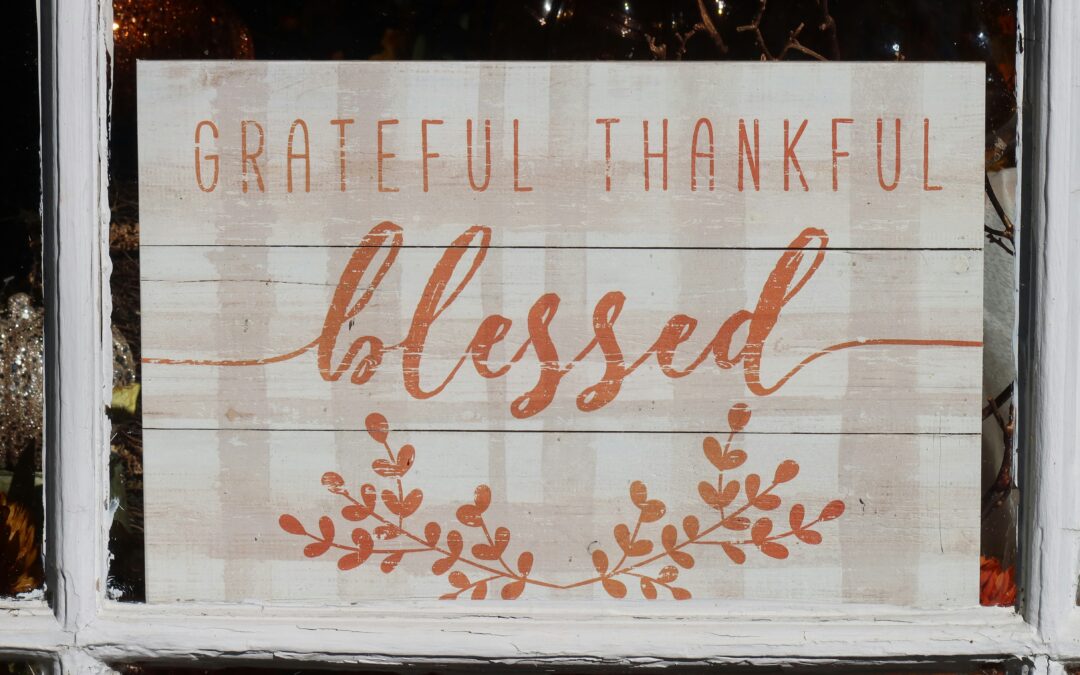Thankfulness is good for mental health
Having an attitude of gratitude and genuinely being appreciative for what we have is healthy. The recognition that we have benefited from something outside of ourselves inspires both humility and thankfulness. In the depiction above, titled The First Thanksgiving at Plymouth” (1914) by Jennie A. Brownscombe (1850-1936) , we see early Pilgrims and American Indians sharing the first Thanksgiving together, having helped each other with the harvest.
Certainly we can be thankful for anything, such as health, work, education, family, friends, sport, romance and love. The traditional and historical roots of thanksgiving celebrations, however, rise out of a deep appreciation and thankfulness for the harvest of food; cupboards and pantries filled with sufficient supplies to sustain life until the next growing season.
In North America, Thanksgiving Day was proclaimed* formally as follows;
On Thursday, January 31, 1957, the Parliament of Canada proclaimed:
A Day of General Thanksgiving to Almighty God for the bountiful harvest with which Canada has been blessed – to be observed on the 2nd Monday in October.
Thanksgiving Day, is a holiday celebrated in the United States on the fourth Thursday in November. It has been an annual tradition since 1863, when, during the Civil War, President Abraham Lincoln proclaimed a national day of “Thanksgiving and Praise to our beneficent Father who dwelleth in the Heavens”, to be celebrated on Thursday, November 26. *From Wikipedia, the free encyclopedia {emphasis added}
Although it appears our American neighbours’ observance of thanksgiving predates ours in Canada, Wikipedia goes on to report “The history of Thanksgiving in Canada can be traced back to the 1578 voyage of Martin Frobisher”. Martin and his crew were thankful for surviving the icy waters to the north, where some did not.
Enough history? What about thankfulness and mental health?
Citing research from Robert Emmons’ new book Thanks!: How the New Science of Gratitude Can Make You Happier (Houghton Mifflin, 2007) Bruce Campbell reports:
“Summarizing the findings from studies to date, Emmons says that those who practice grateful thinking “reap emotional, physical and interpersonal benefits.” People who regularly keep a gratitude journal report fewer illness symptoms, feel better about their lives as a whole, and are more optimistic about the future. Emmons conclusion is that gratitude is a choice, one possible response to our life experiences.” (from: cfidsselfhelp.org)
Giving thanks has been healthy since the beginning of time. Practicing an attitude of gratitude takes work. Positive psychological approaches, like mindfulness, narrative re-writing, solution-focused and cognitive-behavioural therapy help people more fully develop healthy and positive mindsets. It may not surprise us to learn that thankfulness, as with most positive psychological approaches, has its origins in ancient religious teachings.
Helpfulness and altruism share these spiritual origins and also contribute positively to our mental health. This Thanksgiving, when we are giving thanks for what we have at our table, it is equally important to help those in need. Our native American Indians and Pilgrims to the south helped each other survive and were understandably thankful.
“No matter what struggle, challenge or issue we are facing it seems wise to direct our focus on what we are thankful for. In addition, helping those who are less fortunate is a healthy, outward extension of our thankfulness.”
Genuine thankfulness and altruism can take more strength, more energy and more grace than we have. This may be precisely why the pioneers of thankfulness along with our world leaders chose to extend their thankfulness to God.
Happy Thanksgiving!

Recent Comments